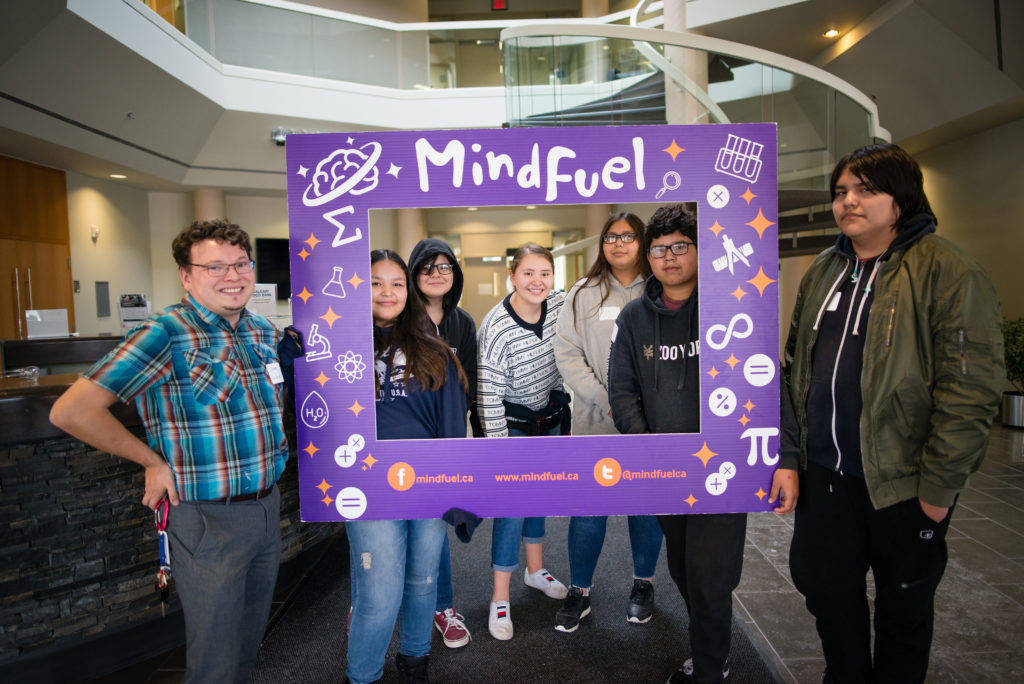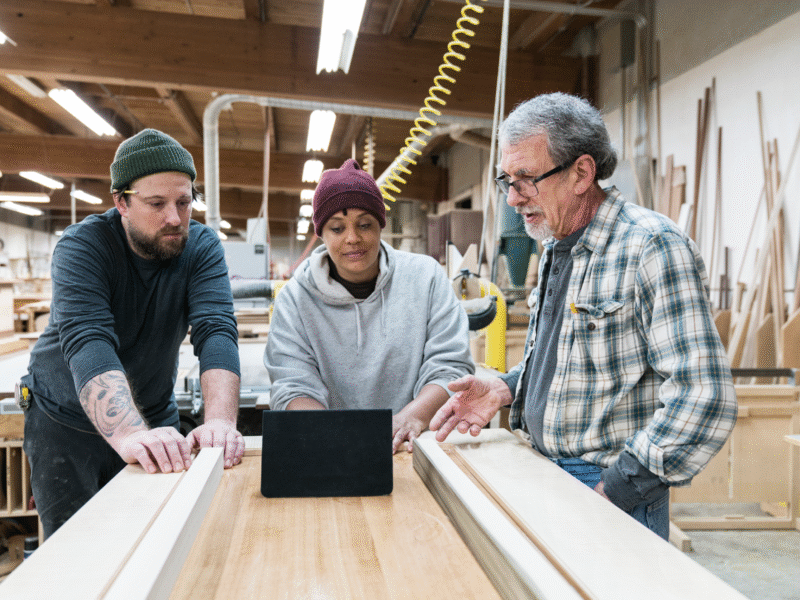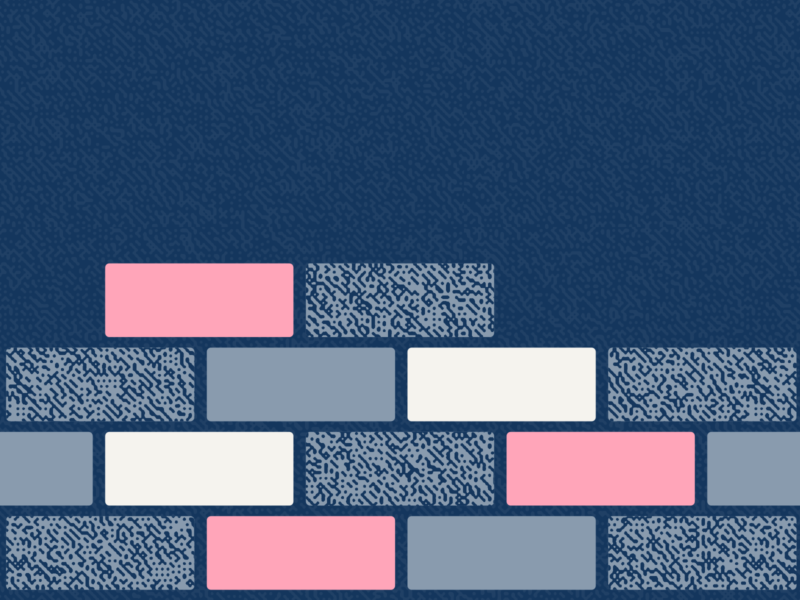Project Insights Report
Tech Futures Initiative
 Executive Summary
Executive Summary
MindFuel came alongside Indigenous communities to address the barriers faced by Indigenous youth in rural and remote communities by implementing STEM and innovation programs for youth. Focusing on communities in the Yukon, British Columbia and Alberta, the organization collaborated with stakeholders to understand their needs and designed workshops where Indigenous youth worked on smart circuit models and built skills.
MindFuel’s program produced significant student engagement. Attendance and interaction at schools increased noticeably and 100% of the educators involved agreed that youth showed an increased interest in STEM careers as a result of the workshops.
While the project team originally planned to use a larger, more structured program, they discovered that an iterative, collaborative approach that committed to a long-term relationship and incorporated community input helped to build trust with Indigenous communities. This approach requires flexible, multi-year support from funders.
MindFuel also found that the most valuable way of sharing knowledge occurs when students pass on what they have learned to friends and family. This happens through awards ceremonies, posters and project showcases. The enthusiasm and personal change demonstrated by students provide a compelling complement to more analytical project evaluation approaches.
Key Insights
Two hundred eighty-three Indigenous students from 17 rural or remote schools across Alberta, British Columbia and the Yukon participated in the project.
All 68 educators who participated agreed that students showed an increased interest in STEM careers as a result of MindFuel’s programming.
Authentic collaboration with Indigenous communities requires longer-term, flexible and iterative approaches from organizations and funders.
 The Issue
The Issue
Research shows that Indigenous youth encounter barriers to access and skills development in technology and literacy. These barriers are even greater for those living in rural and remote areas, such as in the Yukon, Northwest Territories and Alberta. The COVID-19 pandemic only furthered this divide through the shift to online learning. If left unaddressed, these critical gaps could have long-term impacts on the future employment of Indigenous youth and, in turn, the economic outlook of their communities.

 What We Investigated
What We Investigated
MindFuel hoped to address the barriers faced by Indigenous youth in rural and remote communities using their successful STEM and innovation programs for K–12 students. Focusing on communities in the Yukon, British Columbia and Alberta, the organization planned to engage Indigenous students in their Tech Futures Challenge program, a semester-long initiative where youth work collaboratively or independently on real-world sustainability problems to build tangible STEM-based solutions using science, design thinking and mentorship support.
However, after two communities participated in a pilot Tech Futures Challenge, MindFuel concluded that the program’s long length and broad expectations made the challenge format unrealistic. Furthermore, community capacity to support such an initiative was limited and schools were more interested in digital literacy, computational thinking and internet safety. As a result, the project team pivoted to developing workshops for educators on project-based learning and used the interests and needs shared during these sessions to develop resources for smaller, more tangible project-based learning activities with students.
MindFuel ultimately developed workshops where Indigenous students worked on smart circuit models and built skills through a series of progressive activities. With each workshop for educators or students, the project team gathered input and iterated on their solution. While instructor and classroom activities were adapted to the unique needs of each community, MindFuel’s approach consistently included:
- training to build teacher/community skills and capacity;
- STEM student projects with a structured approach to skills development, where students gradually built more complex skills through progressively challenging tasks (scaffolded skills development);
- inclusion of accessible, real-world scenarios, cultural elements, art and humour.
 What We’re Learning
What We’re Learning
The MindFuel project successfully reached 68 educators and 283 Indigenous students from 17 rural or remote schools across Alberta, British Columbia and the Yukon.
Students and staff were highly engaged. While it is still early to track longer-term STEM outcomes, it is clear that MindFuel achieved high engagement from students and staff, resulting in improved student attendance and increased participation in STEM activities. One school shared that students who had not attended classes the entire academic year suddenly participated in MindFuel’s full week of activities. An online school also noted some students turned on their cameras for the first time during MindFuel’s workshops.
One hundred percent of educators agreed that students showed an increased interest in STEM careers as a result, and 88% of students stated they had fun using the new technology. MindFuel’s activities also encouraged curiosity and persistence, with 80% of students stating they kept working on the technology even when some parts didn’t work properly. After facilitating in-person workshops in communities, the project team often received requests from students and teachers to return.
The positive student outcomes included sustained interest and focus, heightened motivation for continued learning, and surpassing minimum activity requirements. Additionally, teachers strengthened their capacity with new technology and are integrating this in their classes. Beyond initial classroom activities, 15 Indigenous students created their own STEM projects for a school district showcase, and two student-led projects were established to solve real-world problems in the students’ community.
Iterative, collaborative approaches are more effective. The formal consultations and needs assessment process originally planned by MindFuel were not always effective with Indigenous communities, and the project team found more success with a collaborative and iterative project management approach that was less linear and emphasized informal conversations. For example, collaborating with communities to incorporate their interests and technology needs into proposed activities in an iterative way proved to be helpful. Discrete, hands-on activities that built on past lessons and offered examples were more effective than longer initiatives were at teaching technical skills. Likewise, delivering multi-part teacher workshops over 8–10 months and adapting the content as needed was more helpful in building skills and relationships with educators.
To support this iterative approach, MindFuel uncovered several best practices:
- Opt for long-term programming and relationships with Indigenous communities; stay away from “one and done” projects that erode trust and restrict iteration.
- Have a single staff member serve as the key contact person for each community.
- Limit the project scope to a manageable size since iterative processes require more thought, effort and uncertainty.
- Ensure budget flexibility because unanticipated expenses or activities will arise.
- Regular reflection and iteration should be included throughout the project cycle, not just at the end.
- Understand there is no “one size fits all” Indigenous model, and embrace listening and learning about the community as a key part of the job.
- Consider knowledge mobilization and dissemination activities from the start of the project instead of waiting until the end to spot opportunities and engage stakeholders.
- Build flexibility into project timelines and trust that everything happens at the right time, even if it does not align with the original work plan.
- Collaborate with funders to ensure adaptability and flexibility in work plans, budgets and timelines.
There were fewer technology limitations than expected. While barriers to technology access remain a challenge for some communities, MindFuel also found that the technology available in other geographies surpassed initial expectations. Many schools had adequate access to technology and Wi-Fi, facilitating successful initiatives such as hosting an online student showcase in collaboration with Northland School Division. The integration of digital mentoring sessions, in addition to in-person workshops, proved effective in enhancing both student and teacher skill-building.
Emphasize personal connection and expression. MindFuel found that the most valuable type of knowledge mobilization to support Indigenous students in developing their innovation mindset was to have students share their knowledge with classmates, friends, teachers and family. The project team used awards ceremonies, posters and project showcases to allow more students to share the project’s lessons and achievements with stakeholders, complementing MindFuel’s formal project assessment reports and other more analytical outputs. The personal changes seen by participants and the community’s engagement—as witnessed in community members’ engagement in the students’ projects, in the depth of newly acquired skills, and in their openness to sharing experiences—surpassed initial expectations and served as an ongoing source of inspiration for the team.
Moreover, these formal and informal collaborative efforts facilitated a deeper understanding of community values and culture. Overall, MindFuel advises that knowledge mobilization should be led by and should come from the community in ways that are meaningful to them, reinforcing a “nothing about us without us” approach.
Integrate content with Indigenous ways of working. Although MindFuel’s hands-on, project-based programs align well with Indigenous ways of working, the project team believed they had further opportunities to incorporate more Indigenous language and land-based practices with community guidance. Not only did this work help to build staff capacity, but traditional methods such as storytelling helped to increase creativity in MindFuel’s communications and activities. Integrating educational content with the community’s daily needs may help promote student and teacher skill-building after the workshops end, a challenge currently faced by the project team.
 Why It Matters
Why It Matters
Educational approaches that marry Indigenous ways of knowing and working and Western STEM concepts contribute to Canada’s Reconciliation journey with Indigenous Peoples. With a rapidly growing population, Indigenous youth in particular are an essential part of Canada’s future labour market, and the future of Indigenous communities. MindFuel’s project demonstrates an approach that successfully generates engagement and excitement for STEM among Indigenous students and for building educator capacity despite heavy workloads.
As a non-Indigenous organization, MindFuel’s approach holds lessons for others seeking to collaborate and develop relationships with Indigenous communities. For funders, in particular, MindFuel’s experience points to the importance of centring community needs, multi-year funding and flexibility with work plans and timelines.

State of Skills:
Enhancing Career Prospects and Well-Being for Canadian Youth
To stem the recent downturn in labour market conditions of youth and to lay the groundwork for them to play a pivotal role in fostering growth and inclusion, it is imperative to address and dismantle the multiple and intersectional barriers they encounter.
 What’s Next
What’s Next
MindFuel is busy building on the momentum established by this project. The organization is committed to long-term partnerships with the Indigenous communities served and is collaborating with stakeholders to pursue further funding.
In addition, new schools and communities are exploring opportunities to work with MindFuel. The organization has been invited by several schools in BC and the Yukon to start initial conversations about a potential collaboration.
Finally, a rural northern school district is collaborating with MindFuel to provide professional learning workshops throughout the year to help teachers integrate more technology skills into their lessons. MindFuel hopes to develop this work into a teacher professional learning model that can be shared with other school districts across Canada.
Have questions about our work? Do you need access to a report in English or French? Please contact communications@fsc-ccf.ca.
More from FSC
Perceptions of Trades Training Gaining Traction over University
Entrepreneurial Skills in the North: Insights from Aurora College
Laying foundations: Technological maturity in Canada's construction sector
Tech Futures Initiative is funded by the Government of Canada’s Future Skills Program. The opinions and interpretations in this publication are those of the author and do not necessarily reflect those of the Government of Canada.




